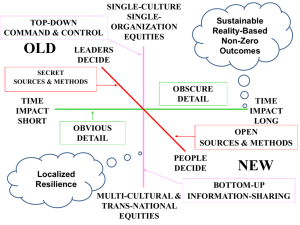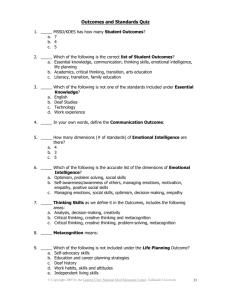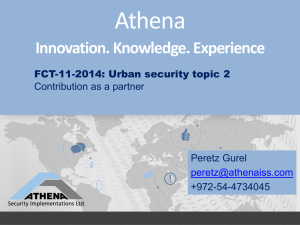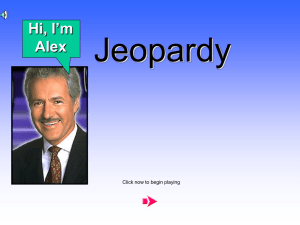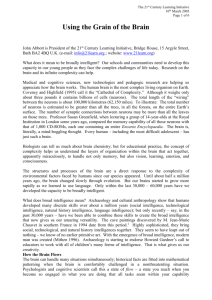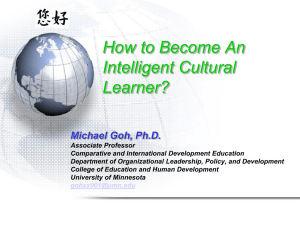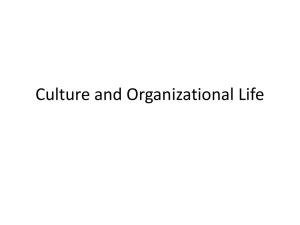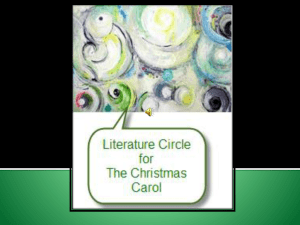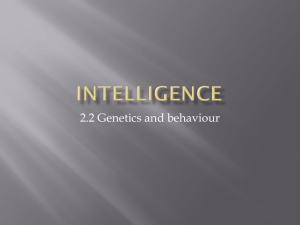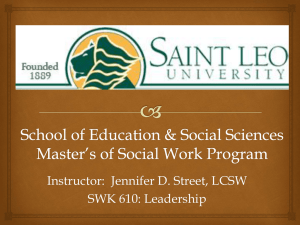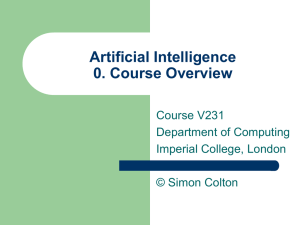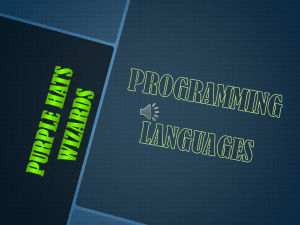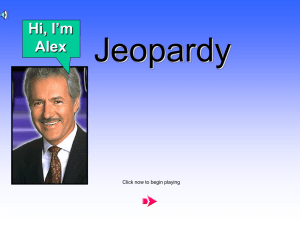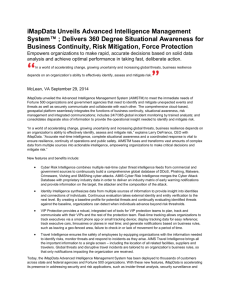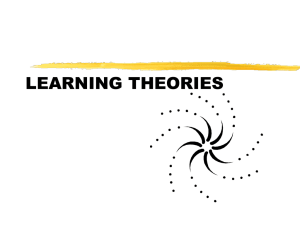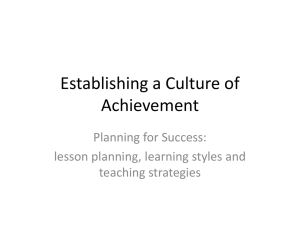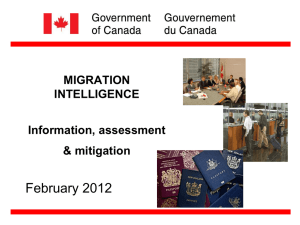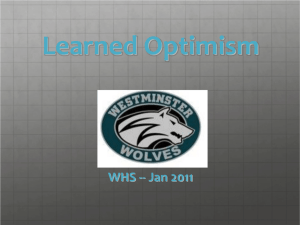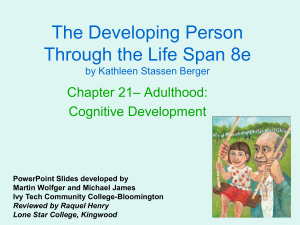Capturing Hearts and Minds
advertisement
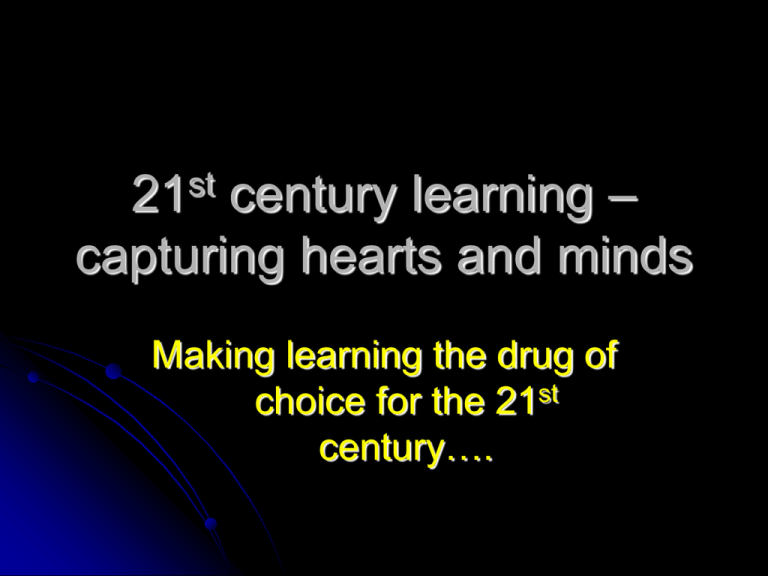
century learning – capturing hearts and minds st 21 Making learning the drug of choice for the 21st century…. What is the elephant ? 50% employers are worried about literacy and numeracy but 70% are more worried about lack of emotional intelligence Addicted to praise – wafer thin confidence - Dweck ‘Spoonfed students can’t cope with degrees’ Telegraph The illiterate of the 21st century are those that can’t learn how to learn More suicides, more depression, more self harm ‘Affluenza’ If you have to try hard you must be thick! For the 21st century Learning School Wanted: Resilient, independent learners who have flexible skills and competencies; who can work well in teams and lead themselves and others to perform up to and beyond their potential. The zippies are here – a new generation in the emerging world Young Indian 15-25 years old Cool, confident and creative Oozes attitude and charm, ambition and aspiration – shuns fear Outward looking, destination driven Competing for global careers against our children PS 54% of India’s population is under 25 ‘From The World is Flat’ - Friedman The personalised learning experience 2020? My name is Jo and I am 13. I follow my own personal timetable that I have created for myself after following a competency based course for the past year……… What is most important? High IQ? High effort? Learning to learn – what is it? Excellence is not an art but a habit - Aristotle Developing a set of skills and habits that facilitate a selfawareness and resilience in learning. Being able to transfer skills and learning from one context to another Understanding how you as an individual learn best and knowing how to use this effectively HOW? Using metacognition(thinking about learning) to develop the above as part of the school experience Learning to Learn – across the curriculum Students know their learning profile Lessons planned using a variety of styles of learning Students teaching each other Formative assessment used Plenary that focuses on how you learn More questions. Open questions Students encouraged to ask questions Thinking and reflection time every day metacognition Assessment for Learning – formative assessment Self-peer assessment Sharing the criteria Focussed marking Tracking using data and setting regular targets Students are in control of their progress Learning to learn EQ Formative assessment Teachers - what’s the difference? Good Fount of knowledge ‘filling empty vessels’ Didactic – teacher guides students Teacher questions Outcome focus Intelligence is fixed Teacher talks Outstanding Facilitator Student centred activity Students construct questions/challenges Students co-designers Students judge success, self correcting Creative opportunities Success and failure equal partners for learning Reflection/ metacognition Develops habits/dispositions Language for learning Cultivate intelligence through mastery of emotions Nurture the thinking that develops this view of learning SEAL Cultivating resilience? To encourage performance – what would you do? Tell him you still think he is brilliant Tell him he didn’t get it because he didn’t deserve it Tell him worse things happen at sea and it’s not the end of the world Tell him he has such talent that he definitely has a fantastic future Tell him he was robbed You believe…. Intelligence is fixed: OR You need to be able to do it quickly and easily to prove you are clever You need to out perform others – always Only thick people have to work hard to get good grades Avoid: having to try too hard, high performing peers, setbacks and mistakes Intelligence is cultivated through learning: You can become more clever the harder you try It’s smart to engage fully with tasks, apply skills, make mistakes, make a big effort Its better to avoid easy stuff – the harder and more impossible, the more it will grow your brain Feeling unsure and out of your comfort zone is exciting EQ - A different kind of intelligence...EQ is common sense Persistence/resilience Deferred gratification Mood control Stress management Empathy Impulse control Optimism Self-management but not common practice The 5 Rs: RESILIENCE, READINESS, RESPONSIBILITY, RESOURCEFULNESS, REFLECTION How does EQ create great teachers? Self aware/self disciplined Takes feedback, takes responsibility Learns from mistakes – resilient Creative – open to new ideas Reflective Curious about learning Uses variety, humour, novelty shamelessly Persistent - knows they can cultivate intelligence Self belief - they have a mission! Easier to teach stuff than ways of thinking - Gardner 2020 Vision Personalised Learning – Ofsted Flexible curriculum Learning to learn – non cognitive skills Assessment for learning/data ICT integral Testing when ready Navigating through more options 14-19 Student ownership of learning Parental engagement The Campaign for Learning Learning to Learn SOS Sustaining the learning focus Learning Review - 5 Rs Develop independent learners Behaviour for learning Joining up L2L/SEAL/AfL inside the new KS3 curriculum Implementing brain friendly learning A competency curriculum - PLTS We are entering the most dramatic paradigm shift in education history - Mark Treadwell Campaign for Learning
